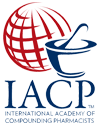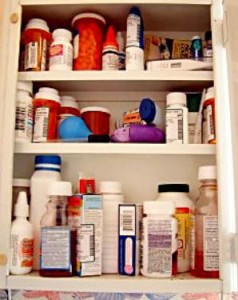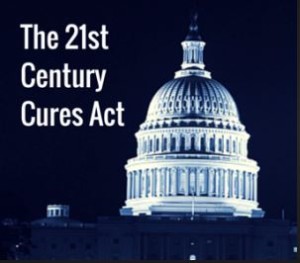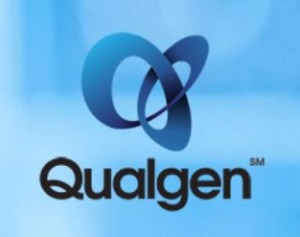- FTC raises anticompetitive concerns about FDA naming proposal for biosimilars (pharmalot.com)Nonproprietary Naming of Biological Products Guidance for Industry DRAFT GUIDANCE (fda.gov)In Response to a Request for Comments on Its Guidance for Industry on the “Nonproprietary Naming of Biological Products; Draft Guidance for Industry; Availability” (ftc.gov)
What’s in a name?..A contentious debate over identifying biosimilars is sparking concern from antitrust regulators. These drugs are designed to emulate expensive biologics and are forecast to save billions of dollars in US health care costs. But finding the best approach for naming biosimilars has confounded regulators and divided the pharmaceutical industry amid clashes over patient safety and the potential for big profits…At issue is whether biosimilars should be given the same name as biologics. Two months ago, the Food and Drug Administration issued draft guidelines that suggested both biologics and biosimilars can use the same name. But the agency also proposed that biosimilar names add a four-letter suffix that differs from the four-letter suffix that should follow a biologic brand name medicine…
- FDA Makes Recommendation to PCAC on Additions to Bulk Drugs (iacprx.org)
Next week, on October 27 and 28, the FDA Pharmacy Compounding Advisory Committee is reviewing ten (nine) active pharmaceutical ingredients to be included on the list of approved bulk drugs that traditional compounders can use in preparing prescriptions. As required within 503A, a bulk ingredient must have an applicable USP monograph, be a component of an FDA approved drug, or be added to an official list authorized by the Secretary of Health and Human Services. The ten (nine) drugs to be reviewed were nominated by stakeholders…in response to formal requests issued by the agency…FDA has released documents for the PCAC that show their recommendations on each of the nominated drugs. (each item, FDA does not recommend addition to the approved bulk ingredient list)
- Methylsulfonylmethane
- Curcumin
- Germanium Sesquioxide
- Rubidium Chloride
- Deoxy-D-Glucose
- Alanyl–L-Glutamine
- Glycyrrhizin
- Glutaraldehyde
- Domperidone
- Specialty Pharmaceuticals for Hyperlipidemia — Impact on Insurance Premiums (nejm.org)
Food and Drug Administration recently approved…PCSK9 inhibitors…These novel biologic agents offer the promise of reductions in blood cholesterol levels. This broad indication sets the practice of cardiology on a collision course with specialty pharmaceutical pricing models…At its core, the current pricing model for these products is driven by a transformation in the pharmaceutical industry, whereby 84% of prescriptions are filled with generic products and follow-on biologics have the potential to disrupt many established markets and firms…for most firms, future revenue expectations hinge on novel therapies…without the potential for outsized returns, capital might not be available for early innovation in biotechnology. Pricing pressure on innovative products would drive a fundamental restructuring of the industry and further increase the financial challenges of bringing scientific innovations to the market. It is important that we manage these downside risks carefully as we work toward a more sustainable pricing model in this market.
- U.S. agency warned consumers on ‘herbal Viagra’ linked to Odom (reuters.com)
…health authorities warned consumers recently about dangers of so-called herbal Viagra, non-prescription products sold to enhance sexual performance, reportedly used by former professional basketball player Lamar Odom, who is in critical condition in a Las Vegas hospital...unregulated sex performance supplement could cause a severe reaction…You can get into trouble because some of these remedies for sexual prowess are stimulants…taken in sufficient quantity, can cause problems with your cardiovascular system…Food and Drug Administration has found that some supplements sold as herbal alternatives to Viagra or Cialis contain the active ingredients of those drugs…falsely marketed as "dietary supplements" that promise to enhance sexual performance are "a risky proposition."..We've seen pills, coffees, chewing gum and dissolvable oral strips that contain hidden drug ingredients or untested chemicals…
- Why the FDA Is Worried About Chinese Drugs in Your Medicine Cabinet (bloomberg.com)
U.S. Food and Drug Administration inspectors at Zhejiang Hisun Pharmaceutical Co….according to agency documents describing problems at the company...There was evidence that quality control staff deleted records of tests that might show a drug was impure. Audit trails disappeared. A paper shredder was kept close by machines that recorded quality data…U.S. and the rest of the world are more dependent than ever on China for medicine. Along with India, the country is one of the top two producers of base ingredients for drugs in the world…the FDA has made inspections there a priority to keep patients safe. It’s found plenty -- the agency has barred 38 plants in China from exporting some or all of their products to the U.S. for manufacturing violations. And 34 facilities are banned from exporting a blood thinning ingredient, after a past scandal, according to the FDA’s import alert list.
- AbbVie, hepatitis C and patient deaths: What the wags say (pharmalot.com)
In a setback to AbbVie, the Food and Drug Administration yesterday warned of liver damage from its two hepatitis C treatments, setting off a chain reaction that is reverberating across the pharmaceutical industry. With as many as seven patient deaths and several liver transplants attributed to the drugs, AbbVie stock plummeted and Wall Street fortune tellers went to work betting on winners and losers…FDA review found five cases that were probably related to the drugs, called Viekira Pak and Technivie…Another five were possibly related. Of the 10 patients, seven died and each seemed to have advanced liver disease or cirrhosis before using the drug. So the FDA is not willing to rule out the possibility that “some events might have occurred even if the patient hadn’t received treatment.”
- Drug Firms Buy Pricey Vouchers to Speed Products to Market (wsj.com)
There is a new price surge in the pharmaceutical industry—for a limited number of government-issued vouchers that drug makers… are buying to speed products to market…vouchers require the FDA to shorten its decision deadline to six months… Because companies can also sell the vouchers, a lucrative secondary market has emerged. AbbVie agreed in August to pay $350 million for a voucher from United Therapeutics Corp. ,which received it for developing a pediatric cancer treatment…the voucher program is attracting…criticism…These programs allow sponsors to ‘purchase’ a priority review at the expense of other important public health work in FDA’s portfolio… such as reviewing applications for drugs that treat more serious conditions...Adding to the escalating prices: the vouchers have a scarcity value because only seven have been issued…
- U.S. FDA warns Novartis on manufacturing violations at 2 India plants (reuters.com)
Food and Drug Administration warned Novartis AG last week after the Swiss firm was found in violation of manufacturing practices last year at two of its India drug-making plants…The warning, issued to Novartis's generic drugs unit Sandoz on Oct. 22, came after FDA officials inspected its Turbhe and Kalwa sites in western India…The FDA has banned more than 30 drug manufacturing plants in India since 2013, as it ramps up inspections of foreign facilities that supply to the United States. Several of India's largest drugmakers have faced rebukes, hurting the reputation of the industry, an important supplier of cheap generics.
- The 21st Century Cures Act – To the Editor: (nejm.org)H.R.6 — 114th Congress (2015-2016) (congress.gov)
In their Perspective article…Avorn and Kesselheim argue that the 21st Century Cures Act, which is currently being debated in Congress, would lower the regulatory standards of the Food and Drug Administration by giving it greater discretion to approve drugs on the basis of less rigorous data…the legislation would authorize the FDA to "rely" on observational analyses, which are less rigorous than randomized controlled trials. But the Cures Act does not diminish the FDA's standards for requiring that new medical products are safe and effective. Rather, it recognizes that recent developments in genomics, systems biology, electronic data systems, and other fields can provide additional tools and resources to support better premarketing and postmarketing regulation and more efficient development of drugs and medical devices…Better evidence and up-to-date regulatory science are the best foundation for regulatory decisions and meaningful progress in biomedical innovation. They are also the best way to avoid turning back the clock on new opportunities to develop safe and effective treatments for unmet medical needs...
- The US FDA has issued an alert warning the public not to take drugs marked as sterile by compounding firm Qualgen. (outsourcing-pharma.com)FDA alerts health care professionals not to use sterile drug products from Qualgen (fda.gov)
During an inspection of Qualgen’s facility in Edmond, Oklahoma, FDA investigators observed "insanitary conditions, including poor sterile production practices, which raise concerns about Qualgen’s ability to assure the sterility of drug products that it produced," said the agency…The FDA recommended the company cease sterile operations until it fixed the problems, but Qualgen agreed only to voluntarily recall 67 lots of drugs. The recalled products were compounded before September 1, 2015 and have not yet expired…The Food and Drug Administration said it is not aware of any adverse events associated with Qualgen’s products…







